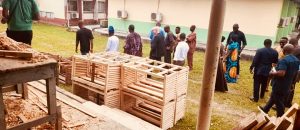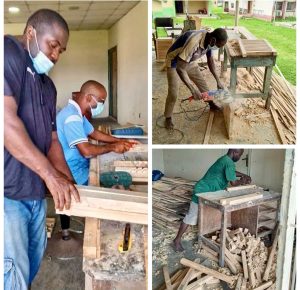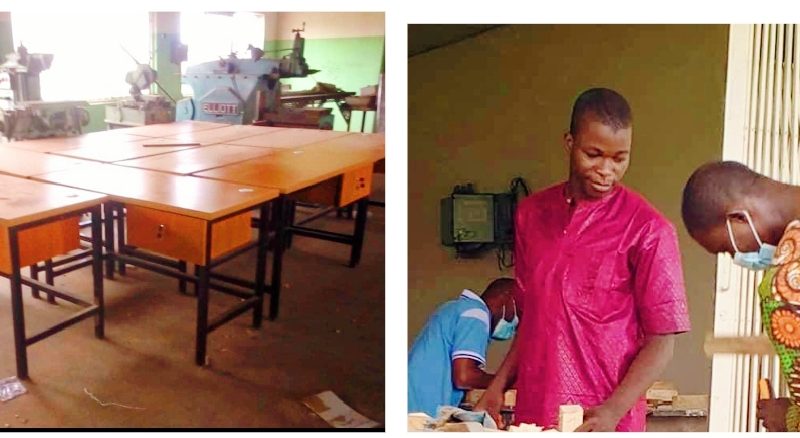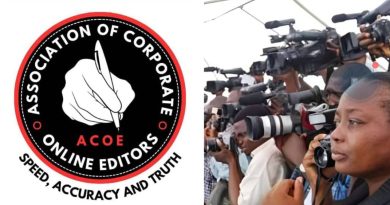NiMet Reactivates Workshop For In-House Production of Carpentry Works
Oru Leonard
In a bid to look inward to preferring solutions to challenges of the Agency, the Management of the Nigerian Meteorological Agency (NiMet), has reactivated the moribund carpentry workshop at the Agency’s Regional Training Center (RTC), in Oshodi, Lagos.
The workshop produces furniture and woodwork for the Agency’s use. It also accepts orders from external clients for customized carpentry and furniture works. A visit to the workshop showed the staff busy at work producing in-house Stevenson Screens for use by the Agency. The Stevenson Screen is a type of enclosure or shelter used to house meteorological instruments, such as thermometers, hygrometers, and barometers in a typical meteorological observatory. The screen is designed to protect the weather instruments from the direct rays of the sun, while also allowing for the free flow of air and maintaining prevailing air temperatures and humidity. Stevenson Screen is typically a wooden box with slatted sides and a roof, which allows for ventilation and minimizes the impact of direct sunlight and precipitation on the instruments.
The screen is usually painted white to reflect sunlight and reduces the impact of radiation on the instruments.
The weather instruments are typically mounted inside the screen, and the screen is usually installed in a location that is representative of the surrounding environment. Stevenson Screen is an essential component of a meteorological observatory, as it allows for the accurate and reliable measurement of meteorological parameters, such as temperature, humidity, and atmospheric pressure.
Other products of the carpentry workshop include quality and standard classroom chairs and tables, beds for schools and homes, office and home furniture among others.
According to the Director General and Chief Executive Officer of NiMet, Professor Charles Anosike, “The resuscitation of the Carpentry workshop is a first step towards the reactivation of the entire entrepreneurial units of the Regional Training CentreComplex for the in-house production of basic non-mercury conventional instruments”.
“Apart from achieving prompt availability of these instruments, this effort also guarantees the production of good quality items that meet global standards as specified by the World Meteorological Organization, WMO. It is also a capacity-building strategy and development of local content that seeks to enhance workforce productivity and optimally utilizes available Human Resources of the Agency”, Professor Anosike concluded.
It would be recalled that Dr. Paul Bugeac, the Coordinator of Learning and Development, World Meteorological Organization (WMO) Education & Training Office, WMO Headquarters, Geneva, Switzerland, had commended the efforts of NiMetmanagement under the leadership of Prof. Charles Anosike for resuscitating the workshop. He commended the quality of items being produced at the workshop during the recent re-accreditation visit of the NiMet RTC.
Dr. Bugeac had charged NiMet to sustain the efforts as it is a shining example for other Meteorological Organizations in the sub-region.
(NIMet Media)




